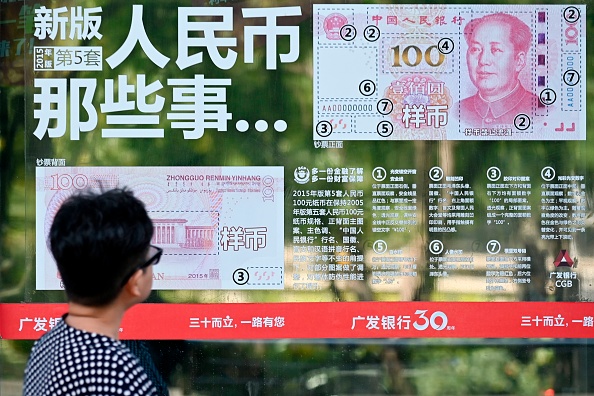Chinese renminbi falls to lowest versus dollar since 2008 as trade war bites

China’s currency the renminbi has fallen to its lowest level against the dollar in 11 years in a move likely to anger US President Donald Trump, who earlier this month accused Beijing of currency manipulation.
Read more: US stock market jumps after China hints at stimulus
The renminbi had fallen 0.2 per cent against the dollar by 9am UK time so that one dollar bought 7.078 yuan, the unit of the Chinese currency, a price not seen since early 2008.
Beijing allows its currency to trade two per cent either side of a point it sets each day. Earlier this month, the renminbi falling to the seven-per-dollar level sparked a furious reaction from the US government. It officially accused China of manipulating its currency to make its exports cheaper and gain a trade advantage.
Asian stock markets recovered overnight after opening higher but then falling. Shanghai’s composite index and Japan’s Nikkei 225 closed 0.1 per cent higher, while Singapore’s STI was up 0.2 per cent heading for the close.
European stock markets were broadly flat this morning as investors chewed over weak manufacturing data from Germany but better-than-expected private sector data from France.
Equity and currency investors’ nerves have been rattled in recent months by an escalation of the US-China trade war as well the ongoing global slowdown.
The trade war has hurt China’s currency, which has in turn affected other emerging market currencies.
“The Chinese authorities’ decision to let the renminbi fall through seven-per-dollar earlier this month amid an escalation of the trade war probably led to an acceleration of outflows,” said Alex Holmes, emerging Asia economist at Capital Economics.
Altogether, emerging market currencies such as the Turkish lira and South African rand experienced net capital outflows – meaning investors sold the currencies – of about $10bn (£8.2bn) in July, Holmes said.
Read more: IMF head: US-China trade war biggest threat to global growth
“With trade tensions likely to escalate and the global economy to slow further, risk appetite is likely to deteriorate and capital outflows will remain larger over the second half of the year.”
(Image credit: Getty)